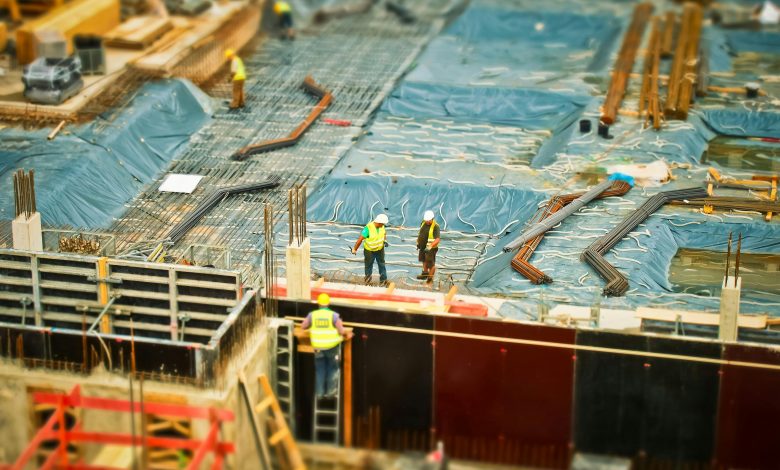
Building Your Dreams: A Guide to Entering Florida’s Construction Industry
How To Get Into Construction Work in Florida
The sunshine state is is a hub of movement and activity, the economy is booming, and so is the construction industry. From high-rise condos to sprawling commercial spaces, there’s a constant demand for skilled professionals to build the future. But how do you, someone without construction experience, get your foot in the door?
This guide will equip you with the knowledge and actionable steps to launch a fulfilling career in Florida’s construction industry.
Why Construction in Florida?
Florida’s construction industry offers a compelling proposition for those seeking a lucrative career.
The Sunshine State consistently ranks among the top in construction employment growth nationwide. According to the Bureau of Labor Statistics, construction jobs in Florida are projected to grow by 7.8% by 2032, much faster than the national average. This translates to a projected addition of over 90,000 jobs during that period.
Construction is not just a job, it’s a chance to make a tangible impact on Florida’s ever-evolving landscape. You’ll work with your hands, see your efforts transform into real structures each day, and contribute to the development of this beautiful state. It’s a unique blend of challenge and reward that can fill you with a sense of pride and accomplishment.
Getting Started: Building Your Foundation

Now that you’re fired up about a career in construction, here are some steps you can take to move forward:
1. Self-Assessment: Skills and Interests
Before diving into the construction industry, assessing your skills and interests is crucial. Do you thrive in physically demanding environments? Are you a problem solver with an eye for detail? These are the qualities that will guide you toward the right construction specialty.
2. Explore Construction Specialties
The construction industry offers a wide range of specialties. Here are some popular options in Florida:
- Carpentry: Specializes in framing, installing, and finishing wood structures.
- Electricians: Install, maintain, and repair electrical wiring and equipment.
- Plumbers: Install, maintain, and repair water and sewage systems.
- HVAC Mechanics: Ensure year-round comfort by installing, maintaining, and repairing heating, ventilation, and air conditioning systems.
- Concrete Finishers: Place, smooth, and finish concrete surfaces.
- Construction Laborers: Perform general tasks on construction sites, assisting skilled craftspeople.
3. Education and Training
While formal education isn’t always mandatory, it can be advantageous.
Consider these options:
- Vocational Schools: Florida trade schools, like CBT Technology Institute, offer courses that provide hands-on training in various construction skills, preparing you for entry-level positions.
- Apprenticeships: These programs combine classroom learning with on-the-job experience under the guidance of a qualified professional. They typically last 3-4 years and can lead to journeyman certification in your chosen specialty.
- Online Courses: Supplement your knowledge with online construction courses to gain specific skills or industry certifications.
4. Building Your Network
In the construction industry, networking is a necessity. Attending job fairs, connecting with construction companies, and reaching out to professionals on LinkedIn can open doors and lead to valuable opportunities. Letting them know about your interest and eagerness to learn can significantly impact your career journey.
Florida-Specific Steps to Consider
To start your own contracting business in Florida, you must obtain a license from the Florida Department of Business and Professional Regulation. The organization offers licenses for various construction industry roles, from general contractor and roofing contractor to plumbing contractor to becoming a solar contractor in Florida.
If you plan on working in the Florida construction industry, you may want to consider earning specific certifications tailored to your preferred role. While not always mandatory, certifications in areas like safety or specific construction skills can make you a more attractive candidate to employers.
Landing Your First Construction Job
Once you’ve built your foundation, it’s time to find your first construction job. Here are some tips:
- Craft a strong resume: Highlight your relevant skills, even from non-construction experiences.
- Practice your interview skills: Research common construction interview questions and practice your responses beforehand.
- Start with entry-level positions: Consider starting as a construction laborer to gain experience and learn the ropes on a job site.
- Be persistent: Don’t get discouraged if you don’t land your dream job immediately. Keep applying, networking, and demonstrating your eagerness to learn.
Building a Rewarding Career

Construction offers a rewarding career path with excellent blue collar earning potential. As you gain experience and hone your skills, you can move up the ranks to become a foreman or supervisor or even start your own construction business. The key is to be dedicated, willing to learn and embrace the challenges and opportunities this dynamic industry offers.
Are You Ready to Take Action?
Embarking on a new career path can be daunting, but it can also be incredibly rewarding with the right support and guidance. CBT’s Basic Building Trades and Maintenance course is an excellent starting point if you’re ready to turn your interest in construction into a fulfilling career. This comprehensive program provides hands-on training in carpentry, electrical, plumbing, and other essential construction skills. You’ll gain the knowledge and confidence to enter the workforce as a qualified construction laborer through classroom instruction and practical exercises.
Here’s what sets this and other courses at CBT Technology Institute apart from courses offered at other Miami trade schools:
- Experienced instructors: Learn from industry professionals who will share their expertise and prepare you for real-world job site scenarios.
- Hands-on learning: Gain practical experience through simulated construction projects, allowing you to refine your skills and build a strong foundation for future success.
- Career support: Benefit from CBT’s career services team, which will help you with resume writing, interview preparation, and job placement assistance.
Investing in your construction education is an investment in your future. Contact CBT Technology Institute today and take the first step towards a rewarding career in Florida’s booming construction industry!
